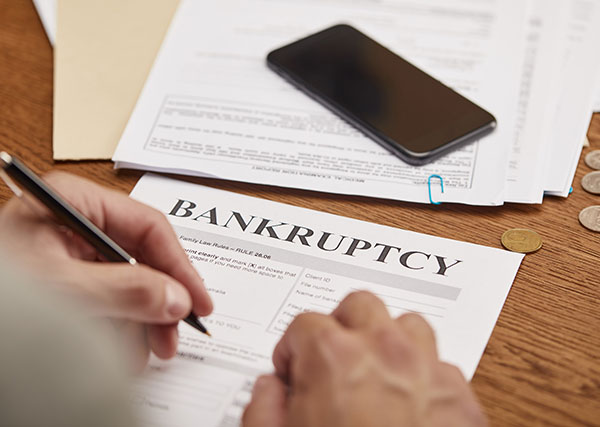Understanding the Power of Stop Payment Notices in Construction Projects
In the complex world of construction projects, payment issues can often arise, leaving contractors and subcontractors unpaid for their services. While mechanic's liens have been commonly used to secure payments, there is another powerful tool at your disposal—the stop payment notice.
Last updated:
Dec
16
,
2025
Published:
Jun 07, 2023
2.6 Mins
Read
In this blog post, we will explore the stop payment notice and its significance in the construction industry. Read on to know more!
What is a Stop Payment Notice?
Unlike a mechanic's lien, which allows you to sell a property to recover your payment, a stop payment notice serves a different purpose. It is a legal document through which you assert your claim and halt the flow of money from the owner to the direct contractor or sometimes from the lender to the direct contractor.
The Mechanism Behind a Stop Payment Notice
When you file a stop payment notice, the funds in question are held until it is determined that all applicable deadlines have passed for you to initiate a lawsuit related to that stop payment notice. It is important to note that the remedies provided by a stop payment notice are not exclusive to other options available to you.
Utilizing Multiple Remedies
In fact, you can pursue multiple avenues simultaneously. For instance, you can file a mechanic's lien and, for the same amount, issue a stop payment notice. Additionally, you may also file a payment bond claim for the same amount. By employing all three remedies, you can have a significant impact on the project and the flow of money.
The Power of Stop Payment Notices
Stop payment notices offer a unique advantage in construction disputes. By effectively freezing the funds in question, you gain leverage and create a sense of urgency for the parties involved. This can lead to a prompter resolution of payment issues.
Clarifying Payment Matters
It's important to note that while you may initiate multiple remedies, you will not receive payment three times over. The goal is to ensure that you receive the amount owed to you, once, through the most effective means available. Additionally, if there are attorney's fees involved, you may be entitled to receive them if there is an attorney's fee clause or a relevant statute supporting your claim.
The Stop Payment Notice Process

Now we have explored the power and significance of stop payment notices in the construction industry. Let's delve into the procedure for obtaining a stop payment notice and the key considerations involved in serving it correctly.
i. Procedure to Obtain a Stop Payment Notice
To obtain a stop payment notice, follow these steps:
- Complete the necessary form to initiate the process.
- Serve copies of the notice to the owner, the direct contractor, and the construction lender, if applicable.
- If direct contact with the owner is not possible, providing a copy to the owner's architect may be acceptable.
- Use reliable delivery methods like overnight express carrier, registered mail, or certified mail when serving the notice.
- These delivery options provide proof of service, ensuring you have evidence of delivering the notice.
ii. Serving the Stop Payment Notice
When serving the construction lender with the stop payment notice:
- Serve the notice to the manager or another responsible officer/person at the branch where the funds are held.
- Deliver the notice to the local branch where you will be serving it, not the bank's world headquarters.
- This ensures that the notice reaches the personnel who have control over the funds in question.

iii. Deadline for Serving the Stop Payment Notice
Regarding the deadline for serving a stop payment notice:
- There is a specific deadline, similar to filing liens, that must be followed.
- If a valid Notice of Completion or Notice of Cessation has been recorded, subcontractors or suppliers have 30 days from the recorded date to serve the stop payment notice.
- Adhering to this deadline is crucial to protect your rights and ensure the validity of your claim.
Protect Your Rights with a Notice to Owner
Sending a notice to owner is the first step to secure payment on construction projects. Learn how a notice to owner Florida helps protect your lien rights and ensures you get paid.
Protect Your Payment Rights with Florida’s Most Trusted Notice & Lien Services
Notice to Owner – Secure your lien rights early. File your NTO now!
Notice to Owner Florida – Stay compliant with Florida deadlines. Send your NTO today!
Mechanics Lien Florida – Get paid faster. Start your Florida lien process now!
Conclusion
Obtaining a stop payment notice is crucial for securing payment in construction projects. By following the correct procedure and serving the notice within the specified timeframe, you can assert your claim, pause the flow of money, and resolve payment disputes. Using reliable delivery methods and retaining proof of service protects your rights. Consulting legal professionals and understanding the relevant laws in your jurisdiction is advisable. Effectively utilizing the stop payment notice, along with other remedies like mechanic's liens and payment bond claims, has a significant impact on project finances. This ensures fair compensation and contributes to a more equitable construction industry.
Sunray Construction Solutions offers professional "Notice to Owner Florida" services to help you secure your mechanics lien florida rights in the construction industry. Looking for a free Notice to Owner form in Florida? Get your free, editable "Florida Notice to Owner Template" today for easy and accurate preparation.












